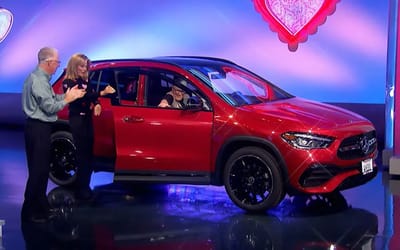Microsoft releases study of the 40 jobs most affected by AI and the 40 AI can't replicate yet
Published on Jul 31, 2025 at 11:04 AM (UTC+4)
by Jason Fan
Last updated on Jul 31, 2025 at 11:50 AM (UTC+4)
Edited by
Amelia Jean Hershman-Jones
A new Microsoft AI study sheds light on which jobs are most likely to be transformed by generative AI, and which remain in human hands – at least for now.
While it can help translate a document, draft a history essay, or summarize legal text, it can’t currently operate heavy machinery or perform physical tasks like drawing blood.
The research analyzed over 200,000 real interactions between US users and Microsoft’s Copilot chatbot, providing a unique window into the kinds of work people are already delegating to artificial intelligence.
The findings reveal a widening gap between jobs that involve language and communication and those that are grounded in physical labor.
VISIT SBX CARS – View live supercar auctions powered by Supercar Blondie
The Microsoft AI study didn’t say that the tech will replace jobs
At the top of the ‘most affected’ list were jobs centered around information, communication, and content creation, such as translators, historians, and writers.
These are roles where language models excel, assisting users with tasks including rewriting, summarizing, or translating with accuracy and speed.
In contrast, hands-on or physically demanding roles barely intersect with what chatbots are capable of doing.

These included jobs like dredge operators, phlebotomists, and hazardous materials removal workers.
Simply put: artificial intelligence can mimic knowledge work, but not manual labor.
However, the Microsoft AI study was careful not to make sweeping claims about job loss or creation.
It stopped short of saying whether the tech will replace jobs or simply reshape them.
The impact on society is hotly debated

This question is being hotly debated across the tech industry.
The CEO of Anthropic, Dario Amodei, recently warned the public that up to half of all entry-level white-collar jobs could disappear in five years.
The chief of design at Mercedes-Benz went a step further, claiming that artificial intelligence will replace him in 10 years, and be much cheaper, too.
Others, like billionaire Mark Cuban, argue that the technology will ultimately be a net job creator.
Microsoft’s lead researcher, Kiran Tomlinson, emphasized that their findings point to task-level support rather than full job automation.

“AI supports many tasks, particularly those involving research, writing, and communication, but does not indicate it can fully perform any single occupation,” he said.
In other words, artificial intelligence will be able to help make your job easier, but it’s still unlikely to take over your job entirely.
Another important caveat: the study only evaluated the impact of large language models, but not other types of artificial intelligencee.
So while chatbots aren’t replacing truck drivers today, advances in robotics or autonomous driving could affect those sectors in the future.
We already see non-chatbots’ potential in many jobs, like dentistry, where a robot was able to complete an autonomous dental procedure eight times faster than a human.
Still, the study reinforces a growing consensus that this revolution is hitting office jobs first.
In fact, if you’re still in school, you might even see a robot student in the classroom, sooner rather than later.
DISCOVER SBX CARS: The global premium car auction platform powered by Supercar Blondie
Jason joined the editorial team at Supercar Blondie in April 2025 as a Content Writer. As part of the growing editorial team working in Australia, and in synergy with team members in Dubai, the UK, and elsewhere in the world, he helps keep the site running 24/7, injecting his renowned accuracy and energy into every shift.




